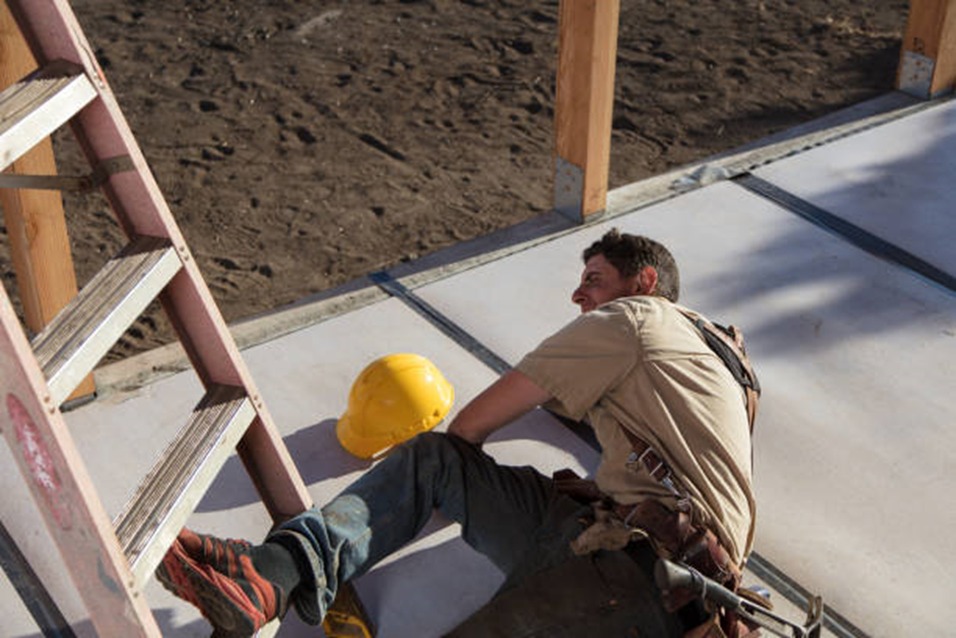If you’ve ever found yourself flat on the ground after slipping at a grocery store, restaurant, or even on a sidewalk, you’re not alone. These accidents happen more often than people realize, and they can lead to serious injuries—some that take weeks, even months, to recover from. If you’re wondering what to do after being hurt in a Slip and Fall Case, this guide will walk you through the steps to take in Miami-Dade.
Let’s break it down together—plain and simple, no legal jargon, no confusion.
Step 1: Don’t Brush It Off — Get Medical Help
You might be tempted to hop back up, shake it off, and go about your day. But don’t. Even if you feel okay in the moment, some injuries—like concussions, fractures, or soft tissue damage—can take time to show up.
Your health should be priority number one. Go to a doctor or urgent care as soon as possible. Not only is this important for your well-being, but medical documentation also plays a crucial role in your case later on.
Step 2: Report the Incident Right Away
Tell someone in charge—whether it’s a store manager, property owner, or building supervisor. Make sure there’s an official report created, and ask for a copy. Don’t leave the premises without getting this done. A documented report becomes part of your timeline, showing that the accident actually happened when and where you say it did.
Pro tip: Keep calm and polite. No need to start pointing fingers just yet. Let the facts speak for themselves.
Step 3: Gather Evidence (Yes, You Can Use Your Phone)
Think of your phone as your best friend here. Snap photos of the exact spot where you fell—was there a puddle? Uneven flooring? No warning signs? Get pictures from multiple angles, including any injuries you can visibly see.
Also, gather names and contact info of any witnesses. You don’t need to conduct interviews, just get the basics in case someone needs to verify what they saw.
Step 4: Avoid Making Statements That Could Be Used Against You
This one is important. Be careful about what you say right after the fall. Don’t apologize or admit fault—things like “I wasn’t paying attention” or “I should’ve seen that” can come back to haunt you. Even saying “I’m fine” might be used to argue that your injuries weren’t serious.
Stick to the facts when reporting the incident and avoid giving too much away, especially to the property owner or their representatives.
Step 5: Keep a Journal and Save Everything
Memory fades, especially when you’re in pain or dealing with doctor visits. So, start a simple journal. Write down how you feel each day, any symptoms, missed work, or lifestyle changes. This log helps show the full impact the injury has had on your life.
Also, keep receipts for medical visits, prescriptions, transportation to appointments, and anything else tied to the incident.
Step 6: Talk to a Local Attorney Familiar with Miami-Dade Laws
Slip and fall case fall under a legal concept called premises liability. Basically, property owners are supposed to keep their places safe. If they don’t, and you get hurt as a result, they may be held responsible. But proving that requires more than just a bandaged knee and a story.
That’s why it’s important to talk to a local attorney who understands how these cases work in Miami-Dade. They’ll know the county regulations, how local courts handle things, and what kind of documentation you’ll need to support your case.
The best part? Most consultations are free, so it’s worth having a quick chat to understand your rights.
Step 7: Let the Legal Process Do Its Thing
Once you have a lawyer, they’ll help you handle the next steps, such as:
- Investigating what led to the fall
- Talking to witnesses
- Requesting security footage
- Speaking with the property owner or their legal team
- Filing legal documents if necessary
It can take time, but being patient and thorough often pays off in these situations.
Why Miami-Dade Slip and Fall Cases Can Be Unique
Miami-Dade is packed with busy public places—from shopping centers to cruise terminals. And with the tropical climate comes frequent rain, which often leads to slippery floors. Combine that with high foot traffic, and you’ve got a recipe for accidents.
Local laws and ordinances can also affect how a case is handled. For example, some municipalities in the area have specific codes about sidewalk maintenance, lighting in parking lots, or drainage systems. That’s why having someone local on your side makes a difference—they’ll know how to navigate it all.
What Counts as a Valid Slip and Fall Case?
Great question. Just because you fell on someone’s property doesn’t automatically mean they were negligent. For a case to hold up, certain things need to be true:
- There was a dangerous condition on the property (wet floor, broken tile, poor lighting, etc.)
- The owner or manager knew or should have known about it
- They didn’t fix it or warn people in a reasonable time
- That hazard caused your injury
If those boxes are checked, you may very well have a strong Slip and Fall Case on your hands.
FAQs About Slip and Fall Cases in Miami-Dade
1. What should I do right after a slip and fall accident?
Immediately seek medical attention, report the incident to the property owner or manager, and document everything—photos, witnesses, and your symptoms.
2. How long do I have to file a slip and fall case in Miami-Dade?
Florida generally gives you two years from the date of the accident to file a case. But the sooner you act, the better your chances of gathering solid evidence.
3. Do I need to hire a lawyer for a slip and fall case?
While it’s not legally required, it’s strongly recommended. A lawyer can help gather evidence, deal with legal paperwork, and make sure your case is taken seriously.
4. What types of damages can I recover?
Depending on the case, you could recover compensation for medical bills, lost income, pain and suffering, and more.
5. What if I was partially at fault for the fall?
Florida follows a comparative negligence rule. That means even if you were partly responsible, you may still recover damages—just at a reduced percentage based on your share of the blame.
Conclusion: You Don’t Have to Navigate This Alone
Slip and fall accidents can leave more than just a bruise—they can disrupt your life, your job, and your finances. The good news? You don’t have to handle it all by yourself. Whether it’s a quick consultation or a full legal case, having someone in your corner can make a world of difference. If you’ve experienced a Slip and Fall Case in Miami-Dade, take the right steps from day one. Document everything, get medical help, and talk to someone who knows the legal system inside and out. You deserve clarity, support, and a pa



